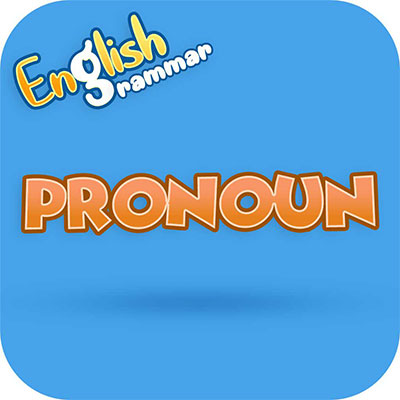Student Productivity Routine: How to Be More Effective?
A student who adheres to a strict schedule is more likely to succeed. It's crucial to your productivity that you can keep your mind on the duties at hand. Concentrating and sticking to a routine are directly correlated with increased output and quality of work. Read on to find the most valuable tips on how to be more focused and productive.
Create a strict schedule for yourself
Maintaining a regular, orderly routine increases efficiency and output. Set goals for the day, and stick to your timetable. Dedicate yourself to studying at a time when you know you can concentrate and get more done. Distractions are impossible to fit into a well-organized day. Establishing and sticking to a plan will instill a feeling of urgency, allowing you to get more done in less time. However, you shouldn't forget about rest. Don't push yourself too much. The plan must be feasible, and its execution must be intuitive.
Maintain an up-to-date status on tasks
Don't pile on the homework. Increase your output by working quickly and effectively on new assignments. Sort your to-do list by what's most important. Putting off work makes it much more difficult when you finally get around to it.
Are time constraints making it difficult for you to study? Professional writers from https://eduzaurus.com/ are available to assist students with any writing project with their free writing samples. College papers provide two key challenges: they are time-consuming and need analysis and original recommendations. Trust professionals if you believe research and writing are not your strong suits. Professional writers with advanced degrees will compose a completely original paper for you, carefully organizing the data to prove or disprove the essays' statements.
Unfinished work has a tendency to build up and become a problem later on. The sheer magnitude of the task at hand will leave you feeling bewildered and unsure of where to begin. To avoid that, get yourself a planner and prioritize your tasks. Keep it where you can see it often as a consistent reminder. Doing so will increase your efficiency.
Improve your place of study
How to study for long periods of time? Having a clean and well-organized study area might help you study longer and complete more work. When your desk is neat and organized, you won't lose track of any of your notes. It will also help you concentrate more clearly and be pleased and inspired by the environment. If your books and papers are neatly shelved, you won't waste time searching aimlessly for the information you need. This is a time-saver and a productivity booster.
Avoid putting things off
Learning to control procrastination is a great way to boost output. Overcoming procrastination may be aided by prioritizing chores and establishing reasonable deadlines. You may increase your productivity by setting specific objectives for yourself.
Beginning a less challenging endeavor might help you gain the confidence and drive needed to tackle more challenging assignments later. If you cannot progress, it is best to leave that section behind. The reduced stress and increased efficiency are both benefits of this step.
Make some fun out of it
How to be productive at home for students? You should not see your studies as a burden. Treat yourself to some luxuries like excellent music and coffee as you study (enjoy your comforts wisely – ensure the music isn't distracting, and the coffee isn't too close to sleep). Spend what you can on fine pens and paper. These simple tricks have the power to make your studies more pleasant and create positive associations in your mind.
Break Big Goals into Smaller Tasks
Complex education undertakings benefit greatly from this approach, especially those requiring investigation and dialogue. They need to be segmented into more manageable chunks that may be completed within a reasonable amount of time. The more you break down your objectives, the more manageable they will seem. To increase your chances of landing a graduate-level position, you should send out at least one application through email every day. Start with the most challenging for your strategy to submit all book reports in three days. Achieving goals is easy if you plan the way to them.
Don't Forget About Hobbies
Engaging in hobbies such as paint-by-numbers canvas art can have a profound impact on your effectiveness in studying. These creative pursuits provide a much-needed break from academic demands and refresh your mind. When you return to your studies, you often find improved focus, reduced stress, and heightened creativity. By nurturing your hobbies, you not only enhance your well-being but also foster a balanced approach to your academic endeavors, ultimately leading to increased effectiveness in your studies.

Improve your child's knowledge about English Grammar Pronoun!
English Grammar Pronoun Quiz is an educational app for the kids to learn about the English grammar pronouns by taking the quizzes and the app will test their knowledge.
Determine When You Are Most Effective
Your productivity will increase as you develop good routines. If you have lessons in the afternoon and evening, your day begins after dinner. In this case, the wee hours of the morning could be your preferred time to put pen to paper for things like essays and reports.
Track your productivity to see when you're at your most and least effective, and schedule accordingly. The time you spend working wouldn't cut into your ability to pursue other interests.
Frequently Asked Questions
1. What are some practical tips for developing a student productivity routine?
Some practical tips include setting achievable goals, prioritizing tasks, taking breaks, establishing a routine, eliminating distractions, and maintaining a positive attitude.
2. How can creating a schedule or to-do list help increase productivity for students?
Creating a schedule or to-do list can help students organize their tasks, set priorities, and ensure they are using their time efficiently. It can also help reduce stress and increase motivation.
3. Are there any specific time management techniques that can help students be more effective?
Some time management techniques include the Pomodoro technique, time-blocking, batching similar tasks, and using a planner or calendar to manage deadlines and appointments.
4. What are some strategies for avoiding distractions while studying or working on assignments?
Strategies for avoiding distractions include turning off electronic devices, finding a quiet study space, using noise-cancelling headphones, blocking distracting websites or apps, and taking regular breaks.
5. How can students balance their academic work with extracurricular activities and social life to maintain productivity?
Students can maintain productivity by setting priorities, creating a schedule, being realistic about their time commitments, and learning to say no to activities that may interfere with their academic goals. It's also important to take breaks and prioritize self-care to avoid burnout.
Conclusion
Being a student might make you feel like you have a ton of work to accomplish but not enough hours in the day. Taking care of yourself, getting enough rest, and making time for socializing are just as essential as getting excellent grades and marks. One of the most valuable things you can learn at college is how to be more productive. We hope that our list of tips will help you achieve that goal faster.









